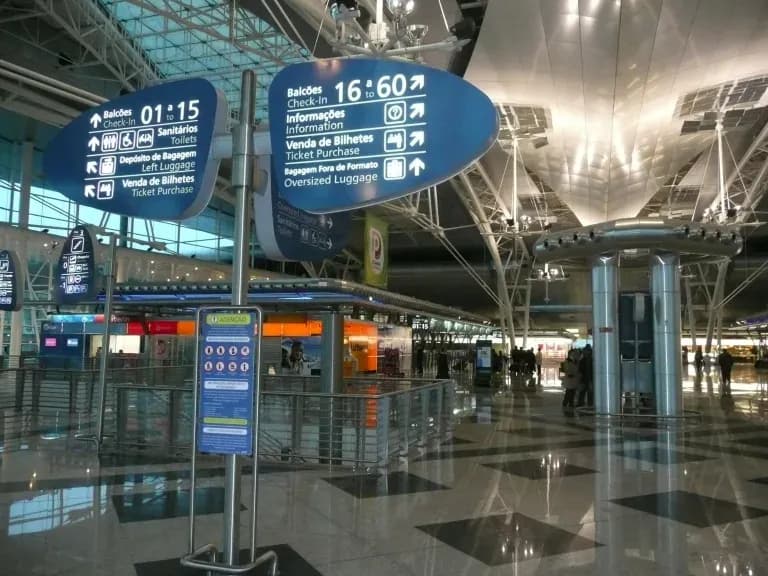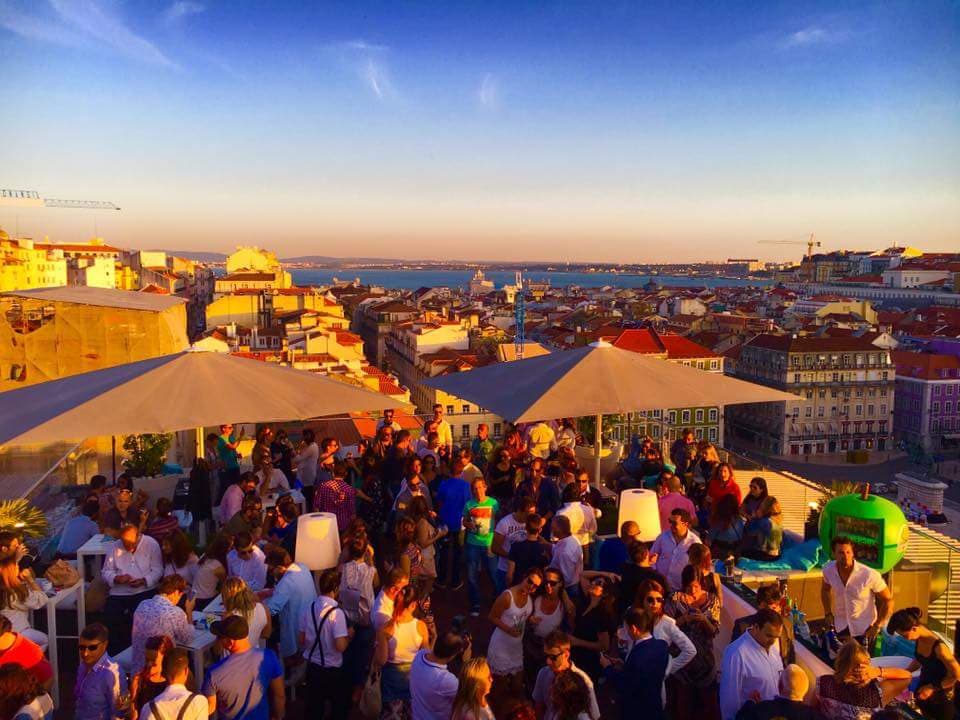
Settling in Portugal isn’t just about learning a few words of Portuguese or discovering the Algarve’s beaches… It’s primarily a human adventure, a meeting of two cultures, two ways of life, and two perspectives on the world! Portugal captivates with its gentleness, authenticity, and way of life, focused on simplicity and what really matters. However, to feel truly at home, it’s essential to understand the locals, their habits, and their unique relationship with time, which can be very different from what we’re used to. Here, we reveal the keys to successful integration, whether you’re staying for a few months or for life.
Learning to Slow Down, The Secret of the Portuguese Pace
Portugal operates at a pace that often surprises those from busier countries. Here, people take their time: morning coffee isn’t gulped down in a rush, there’s plenty of conversation at the counter, and lunch often lingers. This slower tempo is deeply rooted in the culture and contributes to the country’s charm… Embracing it is already a step towards integration !
Those who arrive expecting constant speed or efficiency may face frustration. Portugal values tranquillity and respect for the present moment… Integrating means learning to appreciate this pace and adjusting to it without stress or haste.
Speaking a Few Words of Portuguese A Gesture of Respect
Even though many Portuguese speak English well or know a few words of French, making the effort to use some Portuguese expressions makes all the difference ! A simple “bom dia” or “obrigado” (women always say “obrigada”) creates an instant connection.
It shows respect for the local culture. Portuguese can seem challenging at first, but locals genuinely appreciate any effort, however imperfect; they take time to understand. Many local associations offer affordable courses for those who want to learn the language quickly. Learning everyday expressions opens doors: at the market, in a café, or with neighbours, interactions become warmer and more engaging.

Immersing Yourself in Café Culture
In Portugal, the café is more than just a drink : it’s a true social institution. Every neighbourhood has its favourite café, often frequented for decades by locals who meet there, especially on football match days.
Visiting regularly, sitting down, observing, listening, greeting the staff… all this contributes to local life. It’s here that initial connections are made, where you understand neighbourhood habits and cultural nuances.
Sitting on a terrace (with a galão and a pastel de nata, even better !), exchanging a few words, and gradually becoming a familiar face is part of integration. But beware : some topics can spark heated debates, such as football, money, religion, or politics. Friendly advice : avoid sensitive subjects until you understand the environment !
Observe Before Judging : Portuguese Discretion
Portuguese people often appear reserved at first; they don’t impose their opinions, speak cautiously, and avoid conflict, especially with those they don’t know well. This approach, sometimes seen as distance, is actually a form of respect.
Observation is key to understanding communication codes; modesty and discretion are deeply ingrained values. Integration means adopting this humility and avoiding constant comparisons with your home country. In Portugal, people listen before speaking.
Participating in Local Life and Popular Festivals
Every Portuguese village and neighbourhood has its own festivals, often originally religious, which have evolved into moments of community, with music, food, and conviviality. Participating in these events immerses you in the living culture of the country.
Whether it’s the famous Festa de São João in Porto, the grilled sardines in Lisbon for Santo António, or Alentejo processions, each region preserves its traditions. Locals warmly welcome the curious, and regular participation helps create a sense of belonging.
Understanding the Relationship with Time and Work
The concept of time is experienced differently in Portugal : schedules are flexible, delays are common, and rarely taken personally. Work is approached pragmatically: work-life balance is highly valued, with family and health coming first.
Adopting this philosophy helps you understand Portuguese society and reduce culture shock. Those who integrate best are usually the ones who embrace this flexibility with calm and goodwill.
Tasting Portuguese Cuisine
Cuisine is at the heart of Portuguese culture. Sharing a meal is sharing life and engaging in lively conversation. To integrate, you must taste : family dishes with bacalhau, grilled fish, pastéis de nata, bolas de Berlim… It’s also in these moments that you understand Portuguese generosity: a simple table, always welcoming, with plenty of food !
Frequent local tascas and restaurants, where locals eat lunch with colleagues or friends, and you’ll always be greeted warmly, with a smile and traditional dishes at low prices.
Respecting Nature and Traditions
Portuguese people have deep respect for their land: sea, mountains, and forests; each region has its natural and cultural peculiarities. Integration also means respecting the environment.
Wildfires are a sensitive issue, so responsible behaviour is essential. In rural areas, agricultural and artisanal traditions still thrive. Participating in a cork workshop, a grape harvest, or a local market allows you to discover authentic Portugal and interact with those keeping these traditions alive.
Building Neighbourhood Connections
Neighbours are pillars of daily life. Relationships are usually simple but cordial : greeting, offering help, or accepting a coffee fosters community.
In apartment buildings, interactions can be more discreet, but Portuguese people pay attention to others. Trust is built over time. Engaging in neighbourhood activities (associations, schools, street festivals) also reinforces a sense of belonging.
Understanding Unspoken Cultural Codes
Every culture has its subtleties…in Portugal, tone, gestures, and eye contact carry meaning ! Portuguese people value politeness and restraint; blunt criticism can be offensive. Conversely, sincere compliments, thanks, or encouraging words are always well received.
Professionally, hierarchy is important, but the environment tends to be friendly. Many Portuguese use formal titles (“Doutor”, “Engenheiro”), particularly older generations. A “good morning Senhor Doutor” or “good afternoon Senhora Engenheira” goes a long way.
Finding Your Place in Portuguese Daily Life
Integration means accepting transformation ; it requires time, observation, and curiosity. Portuguese people value simplicity, loyalty, and kindness, and those who share these values quickly feel at home.
You don’t need to give up your culture, but rather find a balance. Portugal offers peaceful living and genuine hospitality to those who take the time to understand it.
Being Yourself, with Kindness
Integration isn’t about blending into the crowd but being open, curious, and respectful ; that’s what leaves a lasting impression. Portugal doesn’t expect you to become Portuguese, but to love the country authentically.
And that’s what makes the experience so special : learning to live fully, the Portuguese way.
Share this article
Suggested articles

Lost in Translation, Portuguese-English False Friends You Should Know
Learning Portuguese as an English speaker (or the other way around) can be both fascinating and occasionally… confusing. The two languages share a fair number of Latin roots, which makes many words look deceptively similar.

The Must-Have Apps for Living in Portugal
Moving to or living in Portugal may sound simple on paper… but once you get there, you quickly realise a few apps can make life so much easier !

How to Avoid Tourist Scams in Portugal, Practical Tips and Local Anecdotes
Every year, millions of visitors discover Lisbon, Porto, the Algarve or even the Azores. Portugal is a warm, affordable country, famous for the kindness of its people. But even in the land of pastéis de nata, a few clever tricksters lurk around. Yes, just like in any popular destination, a few little scams still wander between the cobblestones.

Tips to Pay Less for Your Flight to Portugal
Booking a flight to Portugal is often the start of a guaranteed escape, the kind that smells like sea air and grilled sardines. Landing in Lisbon, wandering through the maze-like Alfama, maybe sneaking in a quick dip in Cascais… pure bliss. But before you can sip a chilled glass of vinho verde or bite into that perfect pastel de nata, you’ll need to score the golden ticket: a flight that doesn’t empty your wallet.

Portuguese Supermarkets, Pingo Doce, Continente, Auchan, and More
Among all these stores, how do you know where to start ? Portugal has two major national supermarket chains: Pingo Doce and Continente, both long-established brands. These supermarkets are where you’ll find everything you need for your weekly shopping, a wide variety of Portuguese brands and some popular international products. For many expats and tourists, understanding how these major local chains work is a real gateway into Portuguese life. Let’s explore the world of Portuguese supermarkets! (Yes, because doing the groceries here is almost cultural anthropology.)

Portuguese Timings, Adapting to the Local Pace of Life
Are you familiar with the Portuguese rhythm of life ? Meal times, work hours, social outings, and even shop schedules follow a pattern quite different from what you might be used to in Northern Europe. Adapting can be surprising, but it’s also a wonderful way to understand local culture and experience a more authentic side of Portugal!


